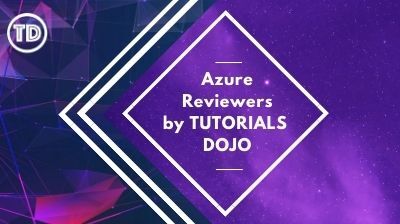Last updated on June 26, 2023
Azure Cloud Concepts Cheat Sheet
- Terminologies of the cloud: High Availability, Fault Tolerance, Disaster Recovery, Scalability, Elasticity, and Agility
High Availability
- If hardware fails, you can get a new, exact copy of it in very little time
- Use clusters (a group of virtual machines) to ensure high availability
Fault Tolerance
- Fault tolerance is part of the resilience of cloud computing
- Zero Down-Time – if one component fails, a backup component takes its place
Disaster Recovery
- Plan to recover critical business systems:
- Recovery Time Objective (RTO) is the time it takes after a disruption to restore business process to its service level
- Recovery Point Objective (RPO) is the acceptable amount of data loss measured in time before the disaster occurs
- Services for backup and disaster recovery:
- Azure Backup – simplify data protection while saving costs
- Azure Site Recovery – keep your business running with disaster recovery service
- Azure Archive Storage – store rarely used data in the cloud
Scalability
- You may increase or decrease the resources and services used at any given time, depending on the demand or workload.
- Vertical Scaling – adding resources to increase the power of an existing server
- Horizontal Scaling – adding more servers that function together as one unit
- Use scale sets for critical scenarios
Elasticity
- Quickly expand or decrease computing resources
- Automatically allocates more computing resources to handle the increased traffic. When the traffic begins to normalize, the cloud automatically de-allocates the additional resources to minimize cost
Agility
- The ability to design, test, and launch software applications quickly that stimulate business growth.
- Cloud agility enables companies to concentrate on other concerns such as security, monitoring, and analysis, instead of provisioning and maintaining the resources.
Validate Your Knowledge
Question 1
Question Type: Multiple-choice
Your company plans on migrating its application named TDojoApp1 to Azure.
TDojoApp1 has a high usage during the first and third weeks of the month and low usage during the 2nd and 4th weeks.
Which benefit of Azure Cloud Services supports cost management for this type of usage pattern?
- Load balancing
- Elasticity
- High availability
- Fault tolerance
For more Azure practice exam questions with detailed explanations, check out the Tutorials Dojo Portal:
Azure Cloud Concepts Cheat Sheet References:
https://docs.microsoft.com/en-us/learn/modules/principles-cloud-computing/3-benefits-of-cloud-computing
https://docs.microsoft.com/en-us/azure/virtual-machines/workloads/sap/sap-high-availability-architecture-scenarios
https://azure.microsoft.com/en-us/solutions/backup-and-disaster-recovery/



















